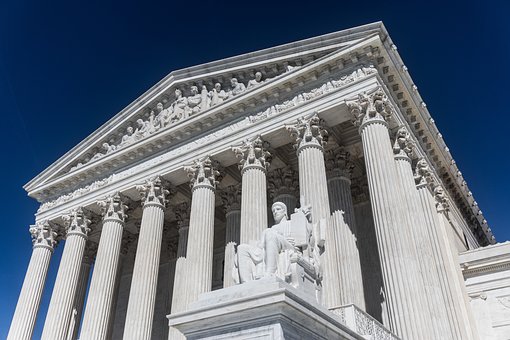By Gerald L. Maatman, Jr., Anna Sheridan, and Rebecca S. Bjork
Duane Morris Takeaways: On July 3, 2025, the Maryland Supreme Court held in Martinez v. Amazon.com, Serv., No. Misc. 17 (Md. July 3, 2025), that the long-standing common law doctrine de minimis curat lex applies to both the Maryland Wage & Hour Law (MWHL) and the Maryland Wage Payment and Collection Law (MWPCL). The Supreme Court aligned Maryland with federal precedent, reinforcing the principle that employers are not required to compensate employees for truly trivial amounts of uncompensated work time – what the U.S. Supreme Court has called “split second absurdities.” This ruling marks a notable win for employers in Maryland, who now have a potential defense against claims for brief unpaid time. For the defendant, the litigation will return to U.S. District Court for the District of Maryland – which had certified the question to the Maryland Supreme Court – for factual analysis on whether the time claimed by employees waiting in line to pass through security screening was truly de minimis.
Case Background
On December 2, 2021, Plaintiff Estefany Martinez brought a putative class and collective action in the U.S. District Court for the District of Maryland on behalf of current and former Amazon employees at its Baltimore fulfillment center. Id. at 2, 6. The Complaint alleged that Amazon failed to compensate employees for post-shift time spent in mandatory security screenings, which allegedly took between 3 and 15 minutes per shift. Id. at 5.
Martinez brought claims under the Fair Labor Standards Act (FLSA), MWHL, and MWPCL, seeking to recover unpaid wages and associated damages. On November 18, 2024, the District Court certified to the Maryland Supreme Court the following question: Does the doctrine of de minimis non curat lex, as described in Anderson v. Mt. Clemens Pottery Co., 328 U.S. 680 (1946), and Sandifer v. U.S. Steel Corp., 571 U.S. 220 (2014), apply to claims brought under the Maryland Wage Payment and Collection Law and the Maryland Wage and Hour Law? Martinez v. Amazon.com Servs. LLC, No. 22-CV- 00502, 2024 WL 4817214, at *33 (D. Md. Nov. 18, 2024).
The Supreme Court of Maryland’s Ruling
On July 3, 2025, in a 5-2 opinion, the Supreme Court of Maryland held that the de minimis doctrine does apply to Maryland wage laws. Martinez. Slip op. at 2. The Supreme Court reasoned that Maryland wage laws are silent on the issue but were modeled on the FLSA, which has long been interpreted to permit employers to disregard “split-second absurdities” – short, administratively burdensome periods of unpaid time. See Anderson, 328 U.S. at 692.
The Supreme Court emphasized that Maryland’s General Assembly did not express any intent to abrogate the common law rule that the law does not concern itself with trifles. It reasoned that had the General Assembly intended to prohibit a de minimis exception, it would have said so. Martinez, Slip op. at 17-19. It further observed that Maryland’s regulatory definitions of compensable time, as reflected in COMAR 09.12.41.10, are consistent with federal standards and do not contradict the de minimis doctrine.
In support, the Supreme Court relied on Anderson v. Mt. Clemens Pottery Co., where the U.S. Supreme Court held that employees must be paid for all time spent working, including pre-shift activities integral to their principal duties. However, Anderson recognized that courts need not impose liability for “negligible time,” noting that “it is only when an employee is required to give up a substantial measure of his time and effort that compensable working time is involved.” Anderson, at 692. After Anderson, the FLSA was not amended regarding the de minimis doctrine, rather it was determined that it was included in the statute all along.
Anderson also recognized the impracticality of recording every minute of work-related activity. It is from this recognition that the de minimis doctrine in wage law was born and later codified and clarified by the Portal-to-Portal Act of 1947.
The Supreme Court of Maryland also cited Sandifer v. U.S. Steel Corp., 571 U.S. 220, 229 (2014) (Martinez, Slip op. at 15), in which the U.S. Supreme Court reiterated that even under the FLSA, employers are not obligated to compensate for time that is too fleeting or difficult to track with precision. Maryland case law authorities have described the MWHL as the State “equivalent,” “parallel,” “partner,” and “counterpart” of the FLSA (id. at 23), and the MWHL mirrors many of the FLSA features, definitions, and exemptions and has remained “substantially similar” to the FLSA since the 1960s. Id. at 24-25. The Supreme Court emphasized that when the General Assembly enacted the Maryland wage laws, it did so against the backdrop of Anderson, Sandifer, and the Portal-to Portal Act, thereby implicitly adopting their contours unless stated otherwise.
Implications for Employers
While the Martinez decision provides employers some breathing room regarding irregular, brief, and administratively difficult to track periods of unpaid time, it does not offer a blanket exemption. Whether a given period of unpaid time qualifies as de minimis remains a highly fact-specific question. In future litigations, plaintiffs must now show that the time they allegedly were not paid for is more than “trifling.” We will follow the proceedings in the U.S. District Court in the Martinez case and keep our readers apprised of developments.










